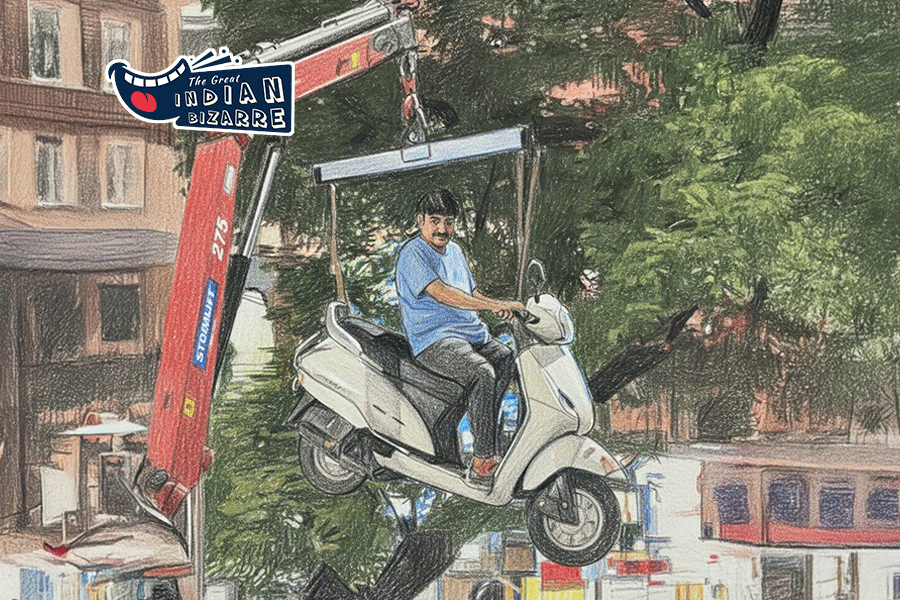 |
2008 |
 |
2006 |
The Tatas’ abandonment of Singur inspired much reflection on the sins of Bengal and Bengalis; their flight to Gujarat should inspire similar thoughts on the virtues of Gujarat and Gujaratis. None of these thoughts are Gujaratis’, however. At any rate, none of major Gujarati newspapers indulged in self-congratulation.
Gujarat Samachar ignored the Nano, Sandesh just reported the developments, and Divya Bhaskar simply quoted Ratan Tata as saying Nano had found a new home. Only Akila gave a detailed report, mentioning amongst other things that the Tatas were offered seven locations out of which they chose the one in Sanand.
The Gujarat government has handed over 1,100 acres out of the 2,200 that its agricultural university currently has; so the land does not have to be acquired. When asked why he chose Gujarat, Ratan Tata mentioned the speed with which the government acted, especially in allocating land. Narendra Modi said that he had laid out a red carpet, and promised there would be no red tape. He also added that he had asked Tata to build the biggest plant in the shortest time. Tata said that he would bring out the Nano on time, but in small numbers and from one of the functioning plants. Setting up the plant in Sanand would take time, since equipment had to be brought over from Singur — a word he studiously avoided, together with West Bengal, Mamata Banerjee, and Buddhadeb Bhattacharjee. But he expected no significant loss; even the structure in Singur would be dismantled and transported.
Narendra Modi, the chief minister, is normally a pretty self-contained character, but he was visibly elated. He said that the Tatas’ decision to build the Nano plant took forward his plans to attract vehicle manufacturers, of whom General Motors was in Halol already and Asia Motor Works was setting up a plant in Bhuj. But he had a larger dream of creating the best transport infrastructure in Gujarat, including ports and highways.
Gujarat has the advantage of not having a Mamata Banerjee; the way Tata put it, in his understated manner, was that the Tatas had a sad experience with some residents of West Bengal. He too stressed a vision that went beyond Nano -- that with Nano, he had rewritten the rules of the game. Now that he had established the possibility of an ultra-cheap car, India would become the hub of small cars; it would change the way people travelled. He said that the Tatas would be good citizens of Gujarat, and would set up facilities for research and development in agriculture and marine biology – an announcement that took Modi by surprise. Tata is not known to speak Gujarati, and I doubted if he knew any. But he added one sentence in Gujarati, which could mean that “we” - the Tatas and their hosts – were companions, or fellow travellers.
Gujarat lacks divisive politics, at any rate when it comes to economics. An industrialist friend was surprised by a talk he had with Ahmed Patel. He wanted to locate a plant in Gujarat, and was somewhat embarrassed as he disclosed it to Patel who, he thought, would regard it as support for the ruling BJP. But Patel was very welcoming. Gujaratis are not demonstratively patriotic, but they think it quite natural that all of them should work in Gujarat’s interest.
The relocation of the Nano plant to Gujarat was not the doing of Gujaratis; it was the government of Modi that was responsible. And whatever its politics, it is a government that works with dispatch and without hitches. Modi is careful about the use of his time. The hangers-on that are characteristic of chief ministers are entirely absent in his case. He spends far more time than they on administration, and much of it on making decisions and pushing people to act.
A chief minister who rewards action creates administrators around him who act quickly; and Modi’s habit of ringing up people responsible without bothering about chains of command and seniority wakes up civil servants all the way down.
This style is Modi’s own, and may not survive his passing. And even he has been so effective because he has tamed his party and vanquished his competitors; this is not the natural state of a party in India. Nor should the context be forgotten: he rules over a people who stick to their own practical affairs and shun public demonstration.
Even in the worst days of Mahagujarat agitation, it is difficult to think of a time when crowds brought traffic in a Gujarati city to a standstill. But in a country grown cynical with the games politicians play, Modi has defined a model of administrative practice that will endure, and will attract emulators.
He is a ruthless man, and his prejudices are certainly not such as would serve the country well. But he has shown what even a politician can achieve in this country; as he said, taking Nano to Gujarat is only a small part of it.











